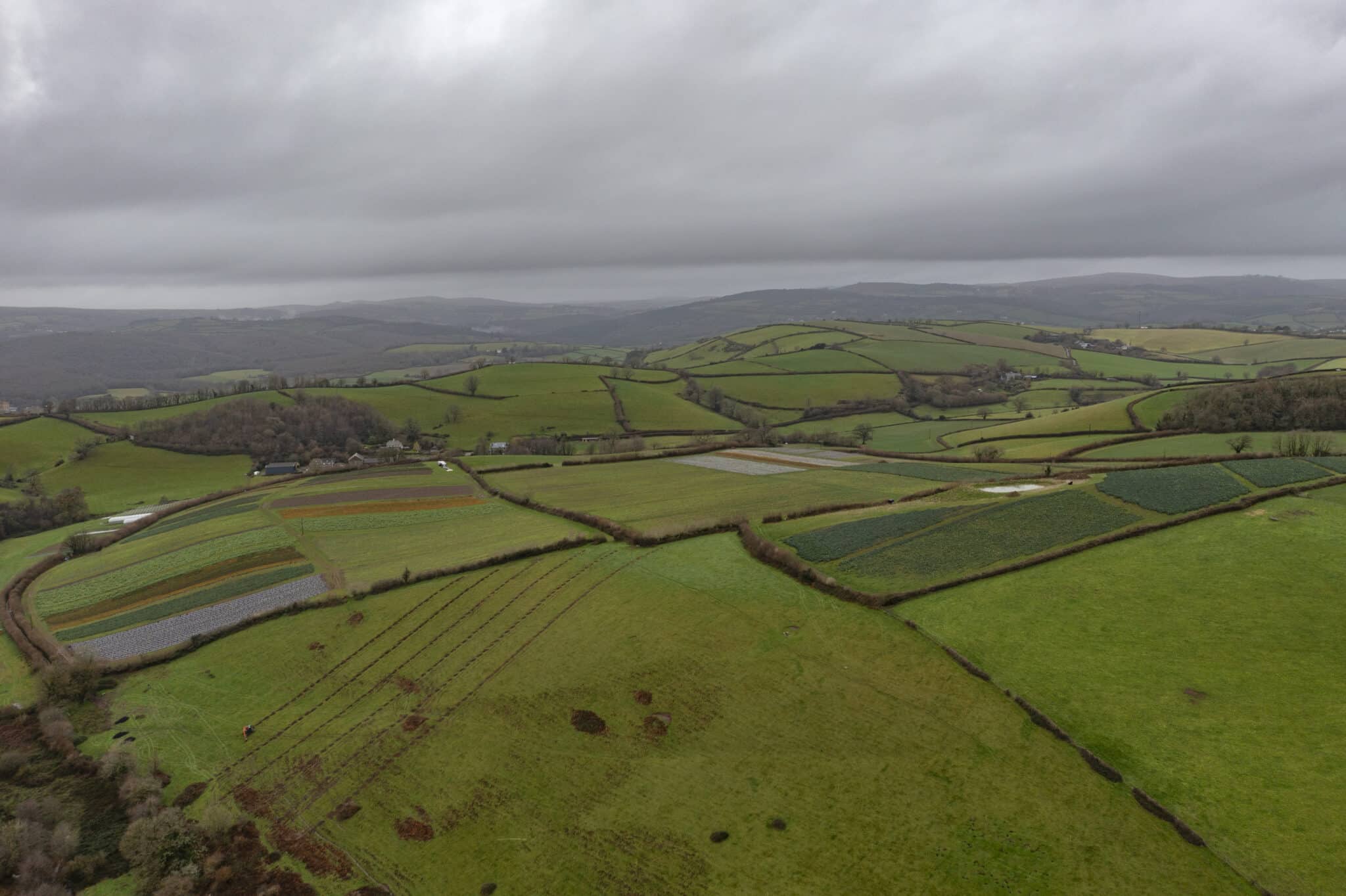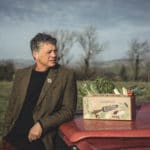Since selling Riverford to its staff, I spend half of my time as one of the 1000 co-owners who have collectively made the business so much more than I could alone. For the other half, I have gone back to farming; this time at Baddaford Farm, two miles up the valley, which my wife Geetie and I bought with the proceeds of the sale. I had visions of leaning over the gate watching bullocks grow fat on the farm’s pastures, while gently sinking into a complacent retirement, and eventually being buried on the hill overlooking the land that has shaped my life.
But despite the thin soil, steep slopes, and my own flagging energy, the grower in me was not ready to lie down. Within five years, the south-facing fields were ploughed and planted with strawberries, artichokes, rhubarb, squash, and purple sprouting broccoli. We have agroforestry trials and some rewilding corridors on the steepest slopes. Like many farmers, I was born to grow food.
We have been joined, in what has come to be known as the Baddaford Collective, by several small, independent, land-based businesses, renting small parcels of land with workshops, stores, and access to our machinery. The farm now provides 15 full-time jobs, selling herbs, seeds, plant dyes, veg, lamb, and soon nuts.
For me, the biggest benefit, apart from helping others and seeing them succeed, is the opportunity to learn from the innovation typical of small businesses – especially new entrants bringing fresh ideas to farming. The long-storing, great-tasting Black Futsu squash in Riverford’s veg boxes over the last few months were introduced by Aidan and Vital Seeds, and we are experimenting with perennial kale after seeing it grown by Mandy of Incredible Vegetables.
The 50-year trend towards vast scale and narrow specialization in farming has had tragic costs; socially, environmentally, and for animal welfare. We need a different model – but is there an economically viable alternative?
I have seen too many idealistic young growers break their backs, dreams, and occasionally families trying to make small-scale farming pay. However, I live in hope that cooperation, patient investment, and shorter supply chains could enable decent, sustainable livings to be made without asking for significant ‘artisan’ premiums from customers. Perhaps the Baddaford Collective’s model (which some call ‘enterprise stacking’) could be part of the solution.










Co-operation and sharing of land, equipment knowledge and seeds between small producers has to be the way forward for the majority of us. We have struggled because we have two hectares and have never been able to afford or justify buying a walking tractor. I think we can all learn about the range of ‘talents’ some of us have that can’t be learned because they are innate. I often find myself scratching my head over my husband’s ability to get cuttings to strike without rooting powder wondering why his transplanted lettuces always thrive. I console myself with my gift for raising Chillies and Aji and herbs. Flourish and nourish!